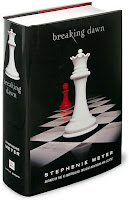 I don’t read too many crime novels. I used to drink in my mom’s Patricia Cornwell books like water back in high school, but that seemed to be a phase. I also read a few Carl Hiassen novels – but those are more humorous takes on crazy crimes (and not focused on one character like Cornwell’s Kay Scarpetta). However, I read some good reviews of George Pelecanos’ The Night Gardener, and put it on my Amazon wish list. A couple of weeks ago I found the book on the discount table at B&N for $5.95 and picked it up.
I don’t read too many crime novels. I used to drink in my mom’s Patricia Cornwell books like water back in high school, but that seemed to be a phase. I also read a few Carl Hiassen novels – but those are more humorous takes on crazy crimes (and not focused on one character like Cornwell’s Kay Scarpetta). However, I read some good reviews of George Pelecanos’ The Night Gardener, and put it on my Amazon wish list. A couple of weeks ago I found the book on the discount table at B&N for $5.95 and picked it up.Here’s the synopsis from the publisher:
When the body of a local teenager is found in a community garden, homicide detective Gus Ramone relives intense memories of a case he worked twenty years earlier. When he was still a rookie, Ramone and his partner Dan "Doc" Holiday assisted legendary detective T.C. Cook as he investigated a series of killings involving young victims left overnight in neighborhood parks. The killer, dubbed, "the Night Gardener," was never caught. Since then, Holiday has left the force under a cloud of morals charges; he now works as a bodyguard and driver, taunted by his dreams of what he might have been. Cook retired, but he has never stopped agonizing about the unsolved case. Ramone is "good police," working as a homicide detective for the city's violent-crime division. He is also a devoted husband and father, and his teenage son, Diego, was a friend of the most recent victim, a boy named Asa." Could the Night Gardener be on the prowl again? Asa's death draws the three men together on a mission to finish the work that has haunted them for years. For T.C. Cook, it means solving one of the few cases that eluded him in his distinguished career. For Doc Holiday, the Night Gardener case is one last chance to prove - to Cook, to Ramone, and to himself - what kind of police officer he once was. For Gus Ramone, catching the killer means not only doing his job but knowing that his son will not be the next victim. The regret, anger, and fierce sense of purpose that once burned between them come rushing back as they race to lay to rest the monster who has stalked their dreams.Because it’s considered crime fiction, I expected the book to sweep me up and become one of those can’t-put-it-down-type books. 150 pages in I don’t have that feeling. However, that doesn’t mean I don’t like the book, which is different for me. The book is very dark. It speaks of all the conflicts between races in Washington D.C., cops and parents and children. How do some of these kids keep it on the straight and narrow when there are so many forces pulling them to the dark side? How do parents help and hinder the situation? And what’s the role of law enforcement (or the local government)? Because all these questions and the sad, dark feeling the book gives me, I think that’s why it is taking me a little longer to digest.
There’s also the mystery. Those who know me know I like to try and figure it out before the big reveal. The mystery is good here, and there are so many characters in play, it’s definitely a challenge to try and place where they all fit in the end. This is the part that keeps me reading, for sure.
In a related note, we watched Gone Baby Gone this weekend. Another missing child-type mystery, filled with good cops and bad cops, race relations, and “right” and “wrong.” A very good, but very dark movie. Put that on top of reading The Night Gardener and it’s no wonder I had a bad dream last night.
What about you? What books did you like, but took a while to digest? Did a book ever give you nightmares?




